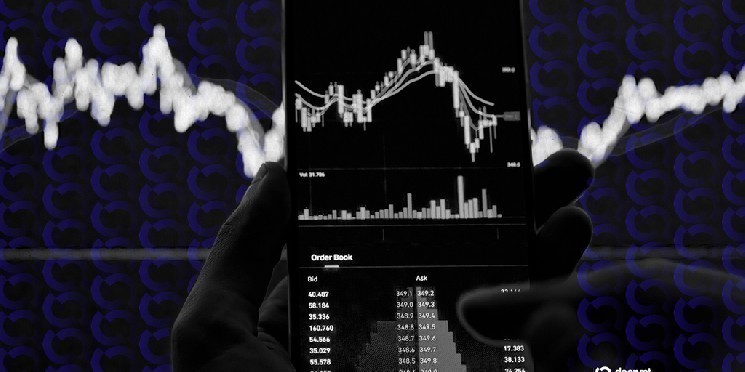
Prominent market maker Wintermute told Decrypt that it stopped trading amid last week’s flash crash, which resulted in over $19 billion in crypto liquidations as the prices of Bitcoin and other assets plunged following President Trump’s latest tariffs threat against China. However, the firm said that it wasn’t so that it could make more money, as some social media users speculated—but rather because its internal rules were broken amid the markets meltdown. Wintermute Desk Strategist Jasper De Maere told Decrypt that the market maker follows a “very rules-based approach,” which includes being delta neutral—a hedging strategy that requires taking multiple positions to maintain no directional exposure to price movements. Market makers continuously buy and sell cryptocurrencies to stabilize prices, ensure liquidity, and improve market efficiency, regardless of the market’s direction. Often, this requires creating a predefined rule set and implementing automated trading systems. During Friday’s crash, Wintermute’s rules were broken, and the firm was forced to regroup. “For example, if we're shorting a perp for any type of hedging reasons, and then we also get liquidated on these very volatile spikes, then it becomes difficult. Then you need to review your entire market making strategy,” De Maere explained. “The violence and the speed at which this entire liquidation cascade happened made it very difficult to continue to make markets in that specific window.” De Maere confirmed that Wintermute stopped trading for a “very short time” as it attempted to understand what was going on. He declined to confirm the exact time frame it stopped trading for, or explain the specifics of which rule was broken. The Wintermute desk strategist also said it's a “safe assumption” that other market makers were affected on Friday. Market maker LO:TECH, for example, also confirmed to Decrypt that it momentarily stopped trading on Friday. "Our systems worked as intended: The risk engine’s circuit breakers kicked in and pulled our quotes from the market,” Marcus Horsley, CTO at LO:TECH, told Decrypt. “The exchange APIs were pretty unreliable at the time, so it took a bit longer to get back to full size while we worked through those issues." Rumors quickly started to spread on social media that the crash was the result of a “coordinated withdrawal” by market makers in an attempt to maximize profits. LO:TECH denies these claims, stating that its systems are entirely automated. Regardless, there is a real impact on the markets when market makers are forced to stop trading. Messari Research Analyst Matthew Nay told Decrypt that market makers pausing their operations would result in “tremendously less liquidity in the order books,” which makes prices more volatile. Greg Magadini, director of derivatives at Amberdata, added that it resulted in fragmentation of prices from exchange to exchange—but he defended market makers’ retreat. “If you think of a big market maker, [it] might be keeping Binance, Bybit, OKX, and Deribit all in line themselves by posting liquidity on all the various venues, and ensuring that there's bids and offers across all venues that kind of move similarly. The problem is that the [market maker] can't rely on its hedges because of this auto-deleveraging,” Magadini told Decrypt. He continued to explain that in traditional markets, the clearinghouse can cover potential losses made by traders, and some crypto exchanges have insurance funds for this reason. However, he said that last week, many exchanges like Hyperliquid opted to use auto-deleveraging, which closes winning positions once the other side of the trade has lost all of their money. “Those gains might just be offsetting losses on one of the other various exchanges, and so standing in the middle providing liquidity to this fragmented environment becomes a lot more risky and unpredictable.” Magadini said. “If you're a market maker and you can't trust the integrity of your hedges, the only thing you can do is to pull out.” Ultimately, De Maere from Wintermute said that if the firm can “make markets in a safe, delta neutral way,” it will—but that wasn’t possible last Friday due to the severity of the flash crash.
Jupiter launches Ultra v3 on Solana
4 hour ago
Over $1.19 billion in crypto leveraged positions were liquidated within 24 hours
4 hour ago
Orochi Network Raises $20M Funds to Elevate Verifiable RWA Data Systems
4 hour ago
Bitcoin Falls To Lowest Since June As Various Factors Drive Losses
5 hour ago
Crypto Market Prediction: Shiba Inu's (SHIB) Zero Finally Added, Ethereum (ETH) to Recover at $3,550? Bitcoin (BTC) $100,000 Free
5 hour ago
Huobi founder Li Lin to join Asian group to launch $1B ETH treasury company
6 hour ago